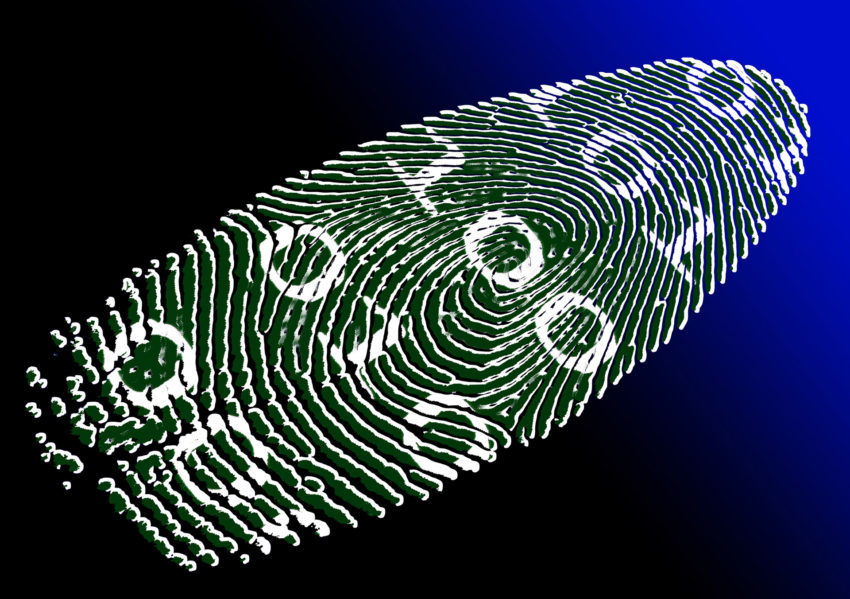Online voting has existed in the public imagination for decades. Until very recently, it remained suppressed by doubts about its security. Enormous advances made during the past decade in cryptography and blockchain technology have finally put online voting on the table as a viable option.
Voting on the internet has numerous advantages over traditional electronic or paper ballots. For many people, especially full-time workers or students, the internet is more physically accessible than a traditional polling station. Online voting greatly reduces the cost of conducting elections. digital ballots secured using well-designed blockchain protocols are more reliable than paper ballots. The results of digital elections can be seen instantly by anyone in the world. Moving elections online opens countless doors to fundamentally restructuring our systems of democracy, potentially making them more responsive, accountable and inclusive.
 In the Photo: A crowd voting. Photo Credit: Edwin Andreade via Unsplash
In the Photo: A crowd voting. Photo Credit: Edwin Andreade via Unsplash
New Technology
Technological breakthroughs made in the past decade are responsible for the surging interest in online voting. Ensuring voter privacy and system security has always been a major roadblock for the possibility on online voting, but viable solutions to these problems have emerged. Advances in cryptography have made it possible for software to check a person’s credentials (like their nationality) without accessing any of their personal information. This is critical for an online voting system, which must maintain voters’ privacy while ensuring that they are who they claim to be.
Online voters can prove their identity with biometrics (like fingerprints and iris scans), real-time selfies, and “self-sovereign identity” (in which people control their own information and data, only sharing it with consent). These methods can be used with an ordinary smartphone.
Another innovation made in the past decade has been the invention of blockchains. A blockchain is an immutable record of information – no hacker nor administrator can edit it once it is recorded. Blockchain technology is a solution to the issue of database security. This technology, when designed correctly using network technology substrates, addresses the largest security vulnerability that exists for online voting: the database of voting information.
Many technical challenges remain in designing an efficient online voting system, but technological solutions to these challenges are being developed and deployed with increasing frequency. Both private and public institutions are looking into the potential of online voting technology.
The following companies and organizations are developing the field of online voting: a few of them are well established, but most of them have been founded in the last five years. They all have a common desire: bring the power of the internet to democracy.
Online Voting Companies
Agora
Agora’s platform allows for private online voting. Votes are recorded to multiple layers of blockchains instantaneously, ensuring that the results are tamper-proof. The voting data is fully auditable by any third party, including the voters themselves, while maintaining voter privacy.
Agora was partially deployed during the March 2018 presidential election of Sierra Leone. The company was an independent observer, recording votes from the West Districts in parallel to the official tally system.
Press coverage of the event initially implied that the election was officially run on a blockchain. Both Agora and the government of Sierra Leone later clarified that the election did not officially incorporate any blockchain technology, and that Agora only acted as an international observer.
Agora is currently halfway through a token sale that will provide funding for its continued development. Agora has published a whitepaper which lays out the intricate details of its system. The company is currently developing its business in South East Asia and North America.
Citizens Foundation
Citizens Foundation is a non-profit organization based in Iceland that helps governments set up “locally owned and operated digital democratic infrastructure.” The organization develops software to use for online voting on budgets, crowd-sourcing policy proposals, and improving personalized voter engagement using AI.
The organization has worked with 72 partners in 22 countries, primarily local governments in Europe. It was founded in 2008 as a response to a collapsed trust in the systems of government that led to the global recession.
eBallot
eBallot is an online voting platform developed for use in civil society organizations such as schools, law firms and unions. Setting up a ballot is made to be quick and easy. Voters can cast their votes from any online device. Data in the system is encrypted and the security system undergoes regular external audits. eBallot is used by NYU, PBS and Java Community Process, among several other organizations.
Scytl
Scytl is one of the most prominent election modernization companies in the world and has acquired awards for its technology from organizations such as the UAE National Election Commission, European Tech Tour, and European Business Awards. Beyond online voting, the company offers many other election services. Audits conducted by independent organizations and academic experts have consistently found the company to be secure and reliable. Scytl’s team of researchers and academics regularly publish theses and reports that push forward the field of secure online voting.
Scytl has implemented online voting for public and private institutions since 2001. The company has produced 326,000 electoral events, involving hundreds of millions of votes, in 33 countries.
Voatz
Voatz turns any smartphone or tablet into a secure voting booth. The system records votes into a blockchain, where they cannot be tampered. Voters verify their identities on the app by taking a picture of themselves and their photo ID and providing biometric identification in the form of either a fingerprint or retinal scan. With their identity verified, users of the app can vote in any type of election, from boardroom elections to government referendums.
The platform was successfully used for a Massachusetts Democratic Party Convention in 2016. Party conventions in Michigan and West Virginia will use the Voatz platform in 2018. Several civil society organizations in the U.S., representing over 70,000 voters, already use this platform. Voatz is now poised to expand its operations internationally. Voatz’s seed funding round closed in January after raising over $2 million.
Democracy Earth Foundation
Democracy Earth Foundation is a tech non-profit dedicated to developing platforms for decentralized and incorruptible online governance. The organization has worked several implementations of online voting, most notably for a Colombian referendum in 2016. Democracy Earth has released Sovereign, an online platform that allows for digital voting on bottom-up proposals within a user-friendly application.
Democracy Earth Foundation is one of the organization working on a new form of democracy called liquid democracy, in which each voter can define their own middle ground between directly voting on legislation and electing a political representative to do it for them. Democracy Earth envisions a democratic system in the which the role of ordinary citizens in the democratic system is greatly expanded.
The foundation is committed to publishing its open-source code, so that anybody in the world can learn from its work and built from its accomplishments. Coders based anywhere in the world are encouraged to participate in the foundation’s ongoing work.
Global connectivity is the heart of Democracy Earth’s ambitions. The foundation claims that its vision is for a global democracy without borders, pushing beyond the political model of nation-states.
Coalichain
This company based in Israel is making a platform that could replace the typically indirect bureaucratic and indirect relationships between voters and political leaders. Coalichain has plans to present its platform to political leaders in several countries including Israel and Estonia. The company is in its early stages of fund-raising: it has published a whitepaper which outlines its product and business model; It has scheduled the release of an app in July 2018, for both Apple and Android.
Coalichain puts traditional political parties onto an app, where they can communicate directly with their constituents and vice-versa. Users can connect with each other to share ideas and start petitions. They also have a limited ability to “speed-dial” political leaders directly with comments and questions. A news feed is tailored to the preferences defined by each user. Users can pay to promote their favorite leaders in the app.
The app allows people to vote securely using blockchain. Voters must go through a process of authentication while making an account and before voting. As the platform develops, it plans to incorporate phone number, 3D-secure credit card and biometric methods of identification.
Payments in the app use a cryptocurrency. This allows for small transactions, or micropayments, allowing leaders to raise funds from numerous small donations. Donations can be conditional, with their fulfillment conditional on terms defined in self-executing smart contracts. For instance, a supporter can donate to a political party on the condition that the party passes a bill or takes some other specific action, and the funds will only go to the party once most supporters consider the condition to be met. Punitive measures, such as financial penalties, can be taken against parties or leaders if they break promises made to their supporters. This system of incentives is designed to significantly improve political accountability.
Luxoft
Luxoft is a global IT service provider. The company developed an open-source online voting platform that uses blockchain to secure the voting record. Luxoft’s system was used this June by the city of Zug in Switzerland to implement online voting for municipal elections. Zug has been an innovator in storing government identification credentials on the Ethereum blockchain, using the uPort system. Citizens of Zug can use their smart phone to present their official identification.
The developers at Luxoft made the platform open-source to be fully transparent about how their technology works.
Polyas
Polyas was founded in 1996. The company develops online voting systems for the public and private sector. In 2016, the German Federal Office for Information Security certified Polyas as being secure enough for online elections.
Voting information is distributed across multiple servers, resulting in a significantly more secure system. Voters are kept anonymous as their identities are not recorded with their votes. After voting is complete, each step of the voting process can then be verified.
Dozens of large companies across Germany use Polyas to conduct online elections. Polyas is spreading beyond Germany and now has clients in eight countries in North America and Europe.
Polys
Polys provides secure mobile online voting. The company uses blockchain to secure voting records. Voters receive personalized codes via email and use them to cast votes either online or at a public polling station. The platform has been used at two universities, two conferences, and most recently by the Yabloko party in Russia for their party primary to elect a candidate for Moscow mayor.
A basic plan is offered by Polys for free, allowing up to 100 voters. Advanced plans offering more features, including flexible voter access and integrated services, are also available.

In the Photo: Digital Binario. Photo Credit: Marcos Tulio via Public Domain Pictures
DemocracyOS
DemocracyOS is an open-source platform for crowd-sourced policy proposals, debate, and online voting. The company was founded in 2012, and is developed by the Argentinian non-profit Democracia en Red. The platform is open-source. DemocracyOS has expanded to several countries, including Argentina and Tunisia, and has been translated into 15+ languages.
Ordinary users can propose policies and put them up for debate. Quality arguments are rewarded while trolling and spam is filtered out. Debates on a policy are given a specific deadline. Using this system, users can vote on the proposals they support and reach a democratic conclusion in a reasonable amount of time.









